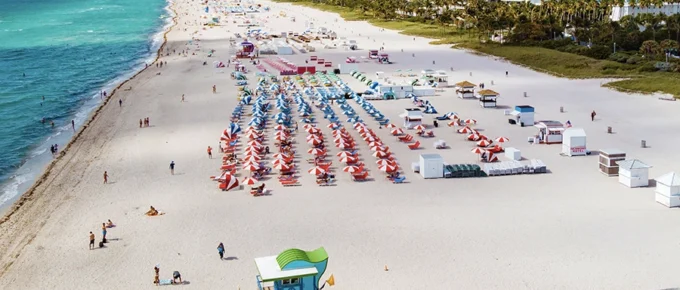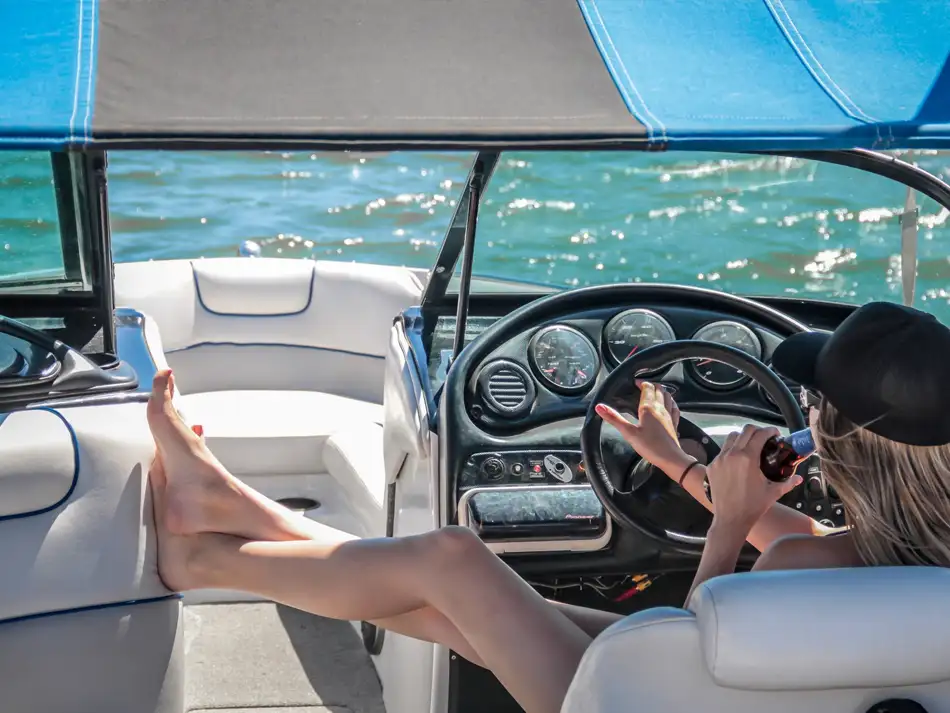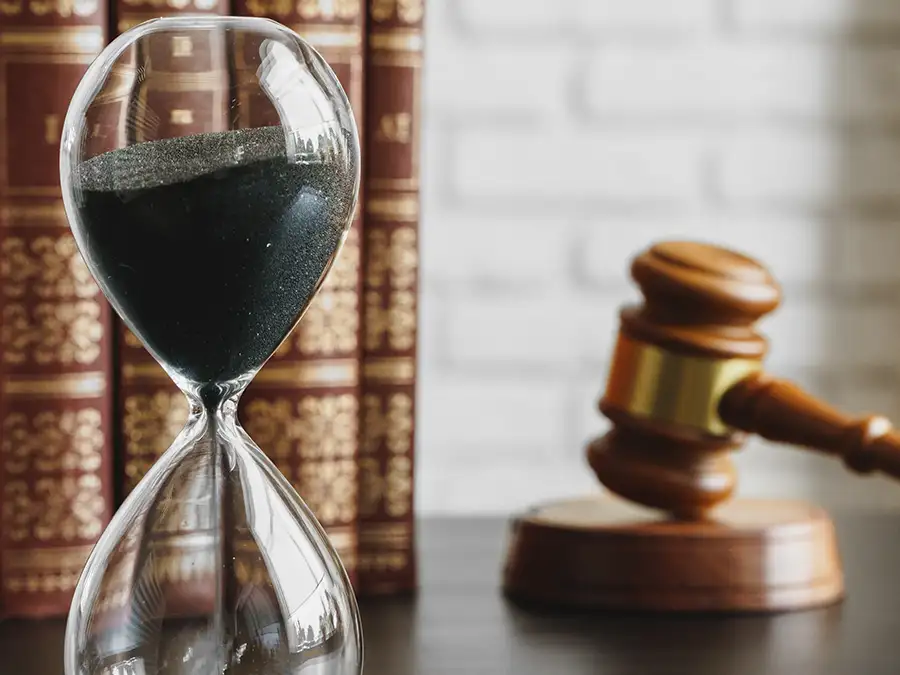
Understand your rights and how to recover maximum compensation after an accident while vacationing in Miami.
With its stunning beaches, dynamic nightlife, and myriad attractions, it’s no wonder that tens of millions of people choose to vacation in Miami each year.
While this vibrant city promises unforgettable experiences, tourists can also face unexpected injuries. Whether you’re leisurely enjoying the sandy stretches of South Beach, embarking on a water excursion, or doing some shopping at Dolphin Mall, accidents can and do happen.
If you’ve suffered a serious or catastrophic injury while visiting Miami, it’s important to find a local legal advocate with knowledge and expertise in Florida law to help you navigate the personal injury claims process.
At Redondo Law, experienced Miami injury attorney Mike Redondo understands the impact that a serious injury can have, not only on your vacation but on the rest of your life.
That’s why he’s dedicated to helping you develop a strong case so you can recover maximum compensation. His expertise in the Miami legal scene, combined with a deep commitment to his clients, makes him adept at handling the unique aspects of tourist accident cases.
Don’t let an injury overshadow your Miami experience.
Reach out to Redondo Law today for a free, comprehensive consultation, and let us be your partner in securing the justice and compensation you rightfully deserve.
Common places where tourists get injured in Miami
In Miami, there’s no shortage of places and experiences to explore and, unfortunately, suffer an unexpected injury. Here’s a look at some of the most common spots where travelers get injured on vacation:
- Beaches and waterfront areas. Miami’s stunning beaches, such as South Beach and the scenic Virginia Key Beach Park, are perfect for relaxation and water activities, but they also pose risks like water sports injuries, boating and fishing accidents, and slip-and-fall accidents on the sandy or wet surfaces.
- Nightclubs, bars and restaurants. The pulsating nightlife in areas like Miami Beach and Downtown Miami, with popular spots like Club Space or Ball & Chain, offers a vibrant scene but also potential hazards, such as slippery floors or overcrowded spaces.
- Shopping centers and malls. Bustling shopping destinations like Dolphin Mall and The Shops at Midtown Miami attract numerous visitors, where accidents like slip-and-falls or parking lot incidents can happen amidst the shopping spree.
- Hotels and resorts. Miami’s luxury hotels, including the Fontainebleau and The Miami Beach EDITION, offer opulent stays but also have areas like pools and hotel restaurants where slip-and-fall accidents, drowning incidents and food-related illnesses can occur.
- Amusement and water parks. While places like Jungle Island and Grapeland Water Park are fun-filled destinations, they also have their share of risks, including ride-related injuries and slips, trips or falls in wet or busy areas.
- Streets and public transportation. Navigating Miami’s streets and using public transportation like the Metromover or renting scooters can sometimes lead to accidents, particularly for those unfamiliar with the city’s traffic patterns.
How do recreational boating accidents happen?
Learn about boating accidents in Miami, including common causes and how to recover compensation.
When can I sue a Miami business for an injury?
In Miami, you can sue a business for an injury once certain legal criteria are met. These criteria generally revolve around the concept of negligence, which refers to a situation in which a person or business fails to exercise the level of care that a reasonably prudent person/business would have exercised in a similar situation, leading to harm or injury to another person.
To prove negligence, you’ll need to show the following:
- Duty of care. The business must have owed you a duty of care. This means they had a responsibility to provide a safe environment. For example, a hotel must ensure their pool deck is free of certain hazards that could increase the chances of slip, trip or fall accidents.
- Breach of duty. The business must have breached that duty of care. This breach occurs when the business fails to uphold its responsibility, such as by not cleaning up a spill in a timely manner or not providing adequate security.
- Causation. The business’s breach of duty must have directly caused your injury. This means your injury would not have occurred if not for the business’s negligence.
- Damages. You must have suffered actual damages as a result of the injury. This can include medical expenses, lost wages, pain and suffering, and other losses.
It’s important to note that in Florida, there is a comparative negligence rule. This means that if you were partially at fault for your injury, any award you receive could be reduced by your percentage of fault.
To pursue a lawsuit, it’s advisable to consult with a personal injury attorney who can evaluate your case, guide you through the legal process, and help determine the best course of action based on the specifics of your situation. An attorney can also assist in gathering evidence, negotiating with insurance companies, and representing you in court if necessary.
What if I signed a liability waiver? Can I still file a lawsuit in Florida?
If you signed a liability waiver before participating in an activity where you were injured in Florida, it could complicate your ability to file a lawsuit, but it doesn’t necessarily eliminate that possibility.
While liability waivers, also known as release forms, are designed to protect businesses or organizations from legal action by having participants acknowledge and accept the risks involved in an activity, there are circumstances where these waivers can be challenged, such as:
- Negligence or recklessness. If your injury was caused by the gross negligence or reckless behavior of the business or its employees, a waiver may not protect them from liability. Courts often hold that waivers do not cover extreme misconduct. For example, if a gym leaves heavy equipment poorly secured and it causes a fracture or traumatic brain injury, this could be considered gross negligence or recklessness.
- Vague or unclear language. If the waiver was poorly written with vague or ambiguous language, it might not be legally enforceable. Courts require waivers to be clear, unambiguous and specific about the risks involved. For instance, if a waiver simply states “you accept all risks” without specifying what those risks are, it could be deemed too vague to be valid.
- Unlawful activities. If an accident was due to an illegal act or the business was operating outside the scope of the law, the waiver might be deemed invalid. An example of this might be if a tour company operates without proper licenses and an injury or wrongful death occurs during the tour.
- Misrepresentation or fraud. If the business misrepresented the activity or hid information about the risks involved, the waiver may not be enforceable. For example, if an adventure park fails to disclose that a zip line has not been regularly maintained, leading to a spinal cord injury, this could be seen as misrepresentation.
- Scope of the waiver. The specifics of the incident and the injury must fall within the scope of the risks outlined in the waiver. If your injury resulted from circumstances not covered by the waiver, it may still be possible to file a lawsuit. For instance, if you sign a waiver for a scuba diving excursion that outlines risks related to diving, such as decompression sickness, but you suffer an acute injury after the boat transporting you to the dive site collides with another vessel, you may be able to pursue legal action.
It’s important to consult with a personal injury attorney if you’ve been injured in an activity where you signed a waiver. An experienced attorney can review the waiver, assess the circumstances of your injury, and advise you on the viability of your case.
Florida personal injury claims process: Timeline & steps
A guide to help you understand the Florida personal injury settlement process so you know what to expect.
How might Florida’s comparative negligence rule impact a personal injury case involving a liability waiver?
Florida’s modified comparative negligence rule can significantly impact cases involving liability waivers, especially in situations where both parties might share some responsibility for an injury.
In a typical scenario without a liability waiver, if an injured party files a lawsuit in Florida, the court will assess the fault of both the plaintiff (the injured party) and the defendant (the party being sued).
Under Florida’s modified comparative negligence system, if the plaintiff is found to be partially at fault for their injury, their compensation is reduced by their percentage of fault. For example, if a plaintiff is awarded $100,000 in damages but is found to be 20% at fault for their injury, they would only receive $80,000.
However, when a liability waiver is involved, the case becomes more complex. These waivers often state that the participant acknowledges and assumes the risks involved in the activity, potentially reducing the liability of the business or entity offering the activity.
In cases where a liability waiver has been signed and an injury occurs, the court will still apply the comparative negligence rule. However, the existence of the waiver can influence how fault is allocated between the plaintiff and defendant.
The court will consider the terms of the waiver, the circumstances of the injury, and the actions of both parties. If the court finds that the waiver is valid and enforceable, it might conclude that the plaintiff assumed a greater degree of risk, potentially increasing their share of fault and decreasing their final compensation.
It’s crucial to note that while liability waivers can be a strong defense, they’re not absolute. They do not absolve a business or entity from responsibility in cases of gross negligence or reckless behavior. Therefore, even with a signed waiver, plaintiffs in Florida can sometimes recover damages, though the amount may be reduced based on their own contributory negligence.
What should I do if I get injured while vacationing in Miami?
What you do immediately after an injury can have a significant impact on your ability to prove fault and recover compensation through a personal injury lawsuit. Here’s what to do if you get injured while traveling or vacationing in Miami to increase your chance of a successful claim:
- Document the incident and your injuries. Take photos of the accident scene, your injuries, and anything that might have contributed to the accident, like a wet floor without a warning sign. If there are any witnesses, try to get their contact information and statements about the incident.
- Seek medical attention immediately. Your health is the top priority. Even if the injury seems minor, some symptoms can appear or worsen over time. Visit a hospital or a local clinic as soon as possible. Documentation by a health care professional is essential to ensuring your injuries can be linked to the accident in a personal injury claim.
- Report the accident. If you’re injured at a restaurant, hotel, store or other business, report the incident to the management. Also, ask for a copy of the accident report if one is made.
- Keep records of all expenses and communications. Save all medical bills, receipts related to the incident (like medication or transport to a medical facility), and any correspondence with businesses or insurance companies.
- Avoid signing documents or making formal statements. Be cautious about signing any documents or providing detailed statements, especially to insurance companies, before consulting with a lawyer.
- Do NOT discuss the incident on social media. Avoid posting any details about the accident or your injuries on social media, as these posts can be used against you in a legal case, even if your account is private.
- Consult with a personal injury attorney. If your injury was due to someone else’s negligence, consult with an attorney who specializes in personal injury law. They can advise you on your rights, help you gather and preserve evidence, and handle all negotiations with the insurance company.
Remember, taking these steps supports your health and recovery and helps build a strong foundation to pursue a legal claim for your injuries.
If your accident occurred in West Palm Beach, we also represent clients throughout that community.
Why social media can destroy your accident claim
Learn what to avoid on social media so you don’t ruin your chance at compensation after an accident in Miami.
Is it better to hire a lawyer in the state where I live or where the injury occurred?
In cases of injury, especially while on vacation or traveling, it’s generally better to hire a lawyer in the state where the injury occurred. Here are some key reasons why:
- Knowledge of local laws and regulations. Laws can vary significantly from state to state. A local attorney will have a thorough understanding of the specific laws and legal nuances in the state where the injury happened. For instance, if you’re injured in Miami, Florida laws will govern your case, and a Florida-based lawyer will be well-versed in these regulations.
- Familiarity with the local court system. Every state has its own court system and procedures. Local attorneys are familiar with the state’s court system, including the judges and the administrative processes, which can be advantageous in navigating your case effectively.
- Connections and resources. Local attorneys often have established networks and relationships within the community, including connections with medical professionals for expert testimonies or with local businesses and entities. These connections can be valuable in gathering evidence, getting expert opinions, and building a strong case.
- State licensing. Lawyers are licensed to practice in specific states. An attorney from your home state might not be licensed to practice law in the state where the accident occurred, which would limit their ability to represent you in local courts.
- Experience with local defendants. If your case involves suing a local business or individual, a local attorney might have prior experience dealing with similar defendants, which can provide strategic advantages in your case.
- Understanding of local jury demographics. In the event that your case goes to trial, a local attorney will have a better grasp of the local jury pool’s attitudes and perspectives, which can be critical in trial preparation and strategy.
Hiring a lawyer in the state where the injury occurred typically offers significant advantages in terms of legal expertise, practical logistics and the strategic positioning of your case. This approach ensures that your legal representation is closely aligned with the specific legal and procedural context of your injury.
How long do I have to file a lawsuit claim against a Florida business after an injury?
In Florida, the statute of limitations for filing a premises liability or personal injury claim against a business is typically 2 years from the date of the incident. This means that, in most cases, you have 2 years to initiate legal action from the date when the injury occurred.
Were you injured at a business while visiting Miami? Redondo Law can help.
If you’ve been injured on vacation in Florida, get the legal help you need from experienced Miami personal injury attorney Mike Redondo at Redondo Law.
Attorney Mike Redondo is acutely aware of the impact a serious injury can have on your life, extending far beyond the immediate medical costs. He recognizes the importance of securing compensation that addresses both your current and future medical needs, as well as any impact on your earning capacity and quality of life.
With extensive experience in Miami personal injury and premises liability law, Mike possesses the knowledge and skills necessary to advocate for your rights. He’s adept at negotiating with large corporations and is committed to ensuring you obtain the fullest financial recovery possible.
Contact Redondo Law today using the form below to schedule your free consultation.




